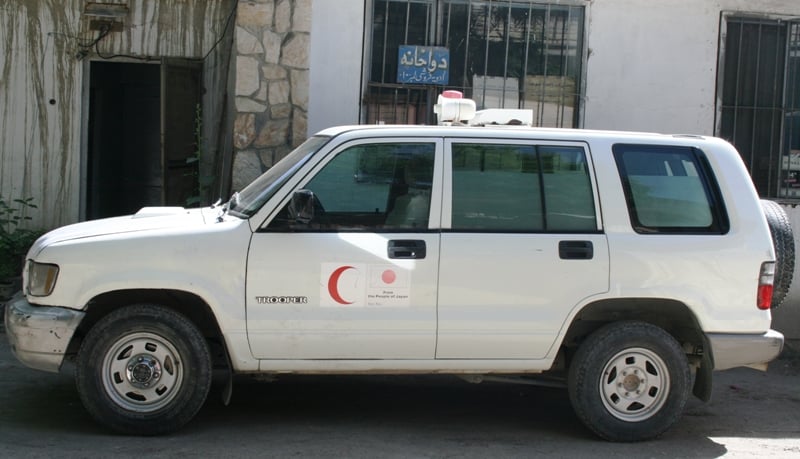“This will not happen again,” Zabihullah Mujahid, a Taliban spokesman, told IRIN.
The International Committee of the Red Cross (ICRC) strongly condemned the use of a clearly-marked ambulance by the attackers.
"Using an ambulance for the purpose of deceiving the adversary in carrying out an attack constitutes perfidy. This is strictly prohibited by international humanitarian law and is totally unacceptable," said Jacques de Maio, the ICRC's head of operations for South Asia, in a 7 April press statement.
Several people, almost all of them security forces, were killed and wounded in the attack, according to provincial officials.
“By violating the neutrality of health care services, such acts of deception endanger medical personnel engaged in caring for the injured and sick in hospitals, clinics and rural health posts,” said the ICRC statement.
Acknowledging the violation, the Taliban spokesman said the sanctity of health workers and facilities must also be equally respected by pro-government Afghan and foreign forces.
Although not used in the ambulance attack, ICRC said its emblem was a protective device intended to ensure respect for medical facilities and transport.
“The ICRC... condemns any abuse of the emblem of the Red Cross or Red Crescent, when it occurs. No matter where, or how, abuse of the emblem occurs, it endangers ordinary people's access to medical care and services,” Jessica Bary, an ICRC spokeswoman, told IRIN.
Taliban warning over “clinic”
In March the government upgraded the Badbakh area of the eastern province of Laghman to a district.
As there was no other government building to accommodate the newly-appointed district governor, he established his office in a clinic.
“We’ve called on the UN and the ICRC to get the district governor and his armed men out of the clinic otherwise we will attack it and we won’t be held responsible for any harm to civilians,” the Taliban warned in a statement on 1 April.
On 10 April, provincial officials told IRIN the district governor had been ordered to leave the clinic immediately. “There are no armed people and government offices in the clinic any more,” said Abdul Latif Qayumi, Laghman’s public health director.
However, Taliban spokesman Mujahid alleged that the district governor was using the clinic at night.
Health facilities and workers have often been attacked in the past few years resulting in diminished access to health in large parts of the country, according to the Ministry of Public Health.
Of the 28 NGO workers (20 Afghans and eight foreigners) known to have been killed last year, armed opposition groups were deemed to have been responsible for 22, the Afghanistan NGO Safety Office said.
ad/cb
This article was produced by IRIN News while it was part of the United Nations Office for the Coordination of Humanitarian Affairs. Please send queries on copyright or liability to the UN. For more information: https://shop.un.org/rights-permissions





